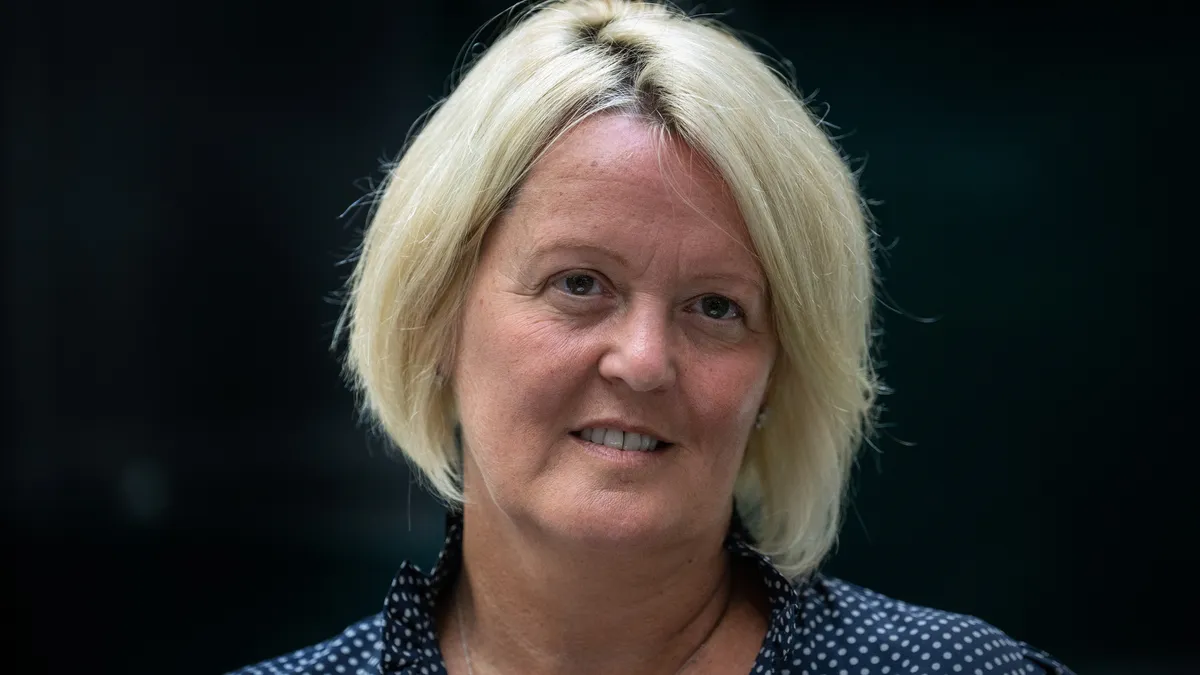NatWest CEO Alison Rose has resigned, effective immediately, the bank said in a statement Wednesday. The move comes less than a day after Rose admitted to a “serious error of judgment” in discussing, with a BBC journalist, the U.K.-based bank’s decision to close the account of Brexit supporter-turned-pundit Nigel Farage.
Farage, for his part, claimed that one of the reasons Coutts, a subsidiary of NatWest catering to the rich, cut him off was because of his far-right political views.
Paul Thwaite, who has led NatWest’s commercial banking division since November 2019, will become the interim CEO for 12 months, the bank said, adding “a further process will take place in due course to appoint a permanent successor.”
Rose, who has led the bank since November 2019, said the decision regarding Farage was made by Coutts, and that she wasn’t a part of it.
“It is a sad moment,” NatWest Chair Howard Davies said in Wednesday’s statement. “[Rose] has dedicated all her working life so far to NatWest and will leave many colleagues who respect and admire her.”
Hours before Rose’s resignation, Davies said NatWest’s board had “full confidence” in Rose.
Farage on Wednesday called for Davies to step down, too. NatWest, however, is already in the process of searching for its next chair. Davies said in April that he would retire by mid-2024, according to Bloomberg.
“The bank should put in place very quickly a new interim board,” Farage said, according to the Financial Times.
“Dame Alison Rose has gone. Others must follow,” Farage wrote in a post on X, the rebranded Twitter. “I hope that this serves as a warning to the banking industry. We need both cultural and legal changes to a system that has unfairly shut down many thousands of innocent people. I will do my best to be their voice.”
Other government officials, too, criticized the account closure.
“This would never have happened if NatWest had not taken it upon itself to withdraw a bank account due to someone’s lawful political views,” Andrew Griffith, the U.K.’s economic secretary to the treasury, tweeted Wednesday. “That was and is always unacceptable. I hope the whole financial sector learns from this.”
The U.K.’s top banks agreed in a meeting with Griffith on Wednesday to offer customers 90 days’ notice of impending account closures — triple the current 30 days.
Farage asserted in June his account was closed with “no explanation or recourse,” according to Bloomberg. The Brexit leader later got a hold of documents showing how Coutts staff discussed his anti-immigration policy was not in line with that of the bank.
Rose sent a written apology to Farage for the way his account was handled and said the paperwork did not “reflect the view of the bank.”
It is “absolutely not our policy to exit a customer on the basis of legally held political and personal views,” she wrote.
Rose, however, discussed the account closure with Simon Jack, a British journalist. In a story, Jack said he got the impression that Farage’s account closure was due to commercial reasons. But documents released by Farage led BBC to update its story, saying it was inaccurate.
U.K. Prime Minister Rishi Sunak has vowed to look into the matter and toughen the rules on bank account closures, The Wall Street Journal reported.
In a statement, Rose said she “remain[s] immensely proud of the progress the bank has made in supporting people, families and business across the UK, and building the foundations for sustainable growth.”
“My NatWest colleagues are central to that success, and so I would like to personally thank them for all that they have done,” she said.













